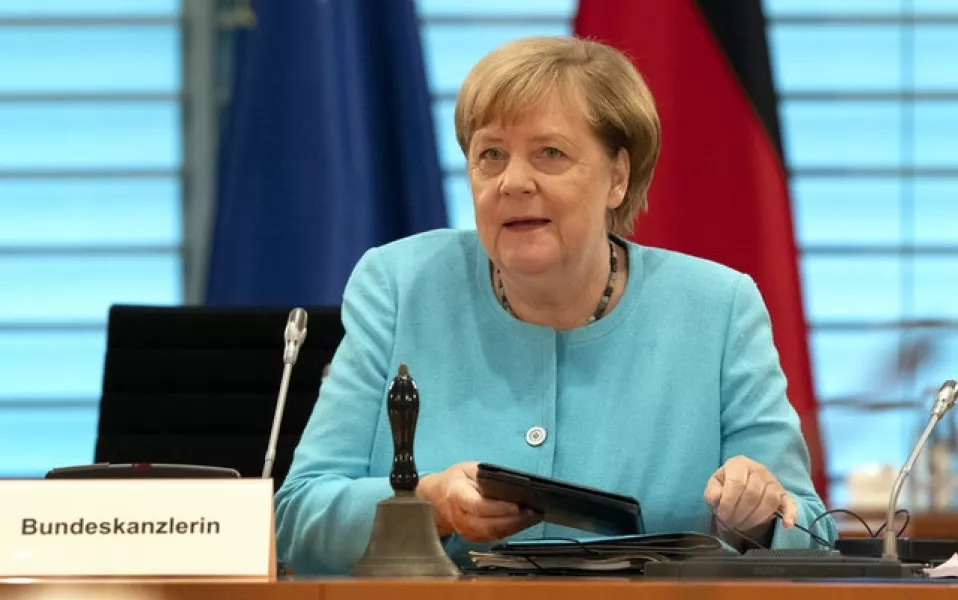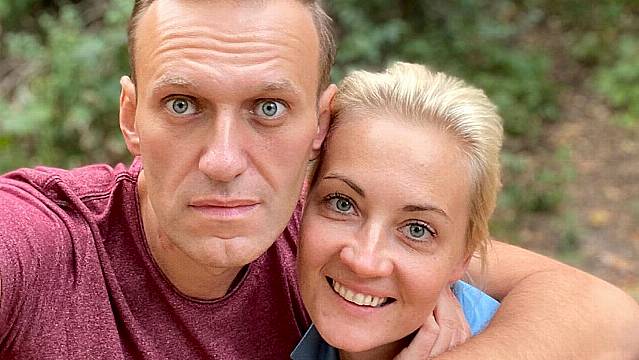German magazine Der Spiegel reported on Sunday evening, without citing sources, that Mrs Merkel had made a secret visit to Mr Navalny when he was at the Charite hospital in Berlin where he was being treated for what German authorities determined was nerve agent poisoning.
“There was a meeting, but one shouldn’t call it secret,” Mr Navalny said in a tweet.
“Rather, (it was) a private visit and a conversation with the family. I’m very grateful to chancellor Merkel for visiting me in the hospital,” the politician wrote.

The report or Mr Navalny did not specify when the visit happened, but Mr Navalny was discharged from the hospital last week.
He spent 32 days in the hospital, including 24 of them in intensive care, before doctors deemed his condition had improved sufficiently for him to be discharged. He will remain in Germany for the time being to continue his rehabilitation, his team said.
Mr Navalny, a politician and corruption investigator who is Russian President Vladimir Putin’s most visible opponent, was flown to Germany two days after falling ill on August 20 on a domestic flight in Russia.
He spent those two days in a coma in a hospital in the Siberian city of Omsk, where Russian doctors said they found no trace of any poisoning.
German chemical weapons experts determined that he was poisoned with the Soviet-era nerve agent Novichok – findings corroborated by labs in France and Sweden.
The nerve agent used in the attack was the same class of poison that was used on former Russian spy Sergei Skripal and his daughter in Salisbury in 2018.

Mrs Merkel called the poisoning an attempted murder and she and other world leaders have demanded that Russia fully investigate the case.
Mr Navalny’s allies accused the Kremlin of involvement in the poisoning, charges that Russian officials have denied.
Russia has bristled at the demands for an investigation, saying that Germany needs to share medical data in the case or compare notes with Russian doctors. Germany has noted that Russian doctors have their own samples from Mr Navalny since he was in their care for 48 hours.
Germany has also enlisted the Hague-based Organization for the Prohibition of Chemical Weapons for technical assistance. The agency has collected independent samples from Mr Navalny for testing but results have not yet been announced.
Mr Navalny is recovering from the suspected assassination attempt faster than expected, his close ally and top strategist Leonid Volkov said.
He told German broadcaster RTL: “He is doing much better, I would say unexpectedly better. I think the recovery is really faster than expected, and of course this is good news that makes us very happy.”







